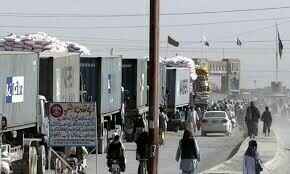KABUL: The country’s minister of trade announced that the Taliban had reached an agreement with Kazakhstan and Turkmenistan to construct a logistical center in western Afghanistan. The goal of this project is to turn the war-torn country into a key hub for regional exports, such as oil from Russia to South Asia.
Nooruddin Azizi, the acting minister of commerce for the Taliban, told Reuters that following a meeting between representatives of the three nations last week in the capital of Afghanistan, technical teams would draft a formal agreement on the hub’s plans in two months, which all three nations would then invest in.
As foreign aid to Afghanistan falls and the predominantly agricultural economy is marred by persistent drought, its officially unrecognised Taliban government has faced questions over how to fund development and avoid economic stagnation.
Azizi said the new hub was part of broader efforts to take advantage of Afghanistan’s strategic location, once a thoroughfare for the ancient Silk Road trade route, lying between South and Central Asia and sharing borders with China and Iran.
“Based on our discussions, a logistics centre is going to be established in Herat province, which can connect the north to South Asia,” Azizi said, adding that the Taliban were eyeing the millions of tons of oil they expected Russia would be selling in coming years to South Asian countries, particularly Pakistan, to pass through the new hub.
He declared, “The three nations have tried their hardest to substantiate Afghanistan’s claim as a connectivity point.” “The best option will be to reach Pakistan through Afghanistan,” Azizi stated, noting that they were also considering Kazakhstan’s plans to send commodities into South Asian markets through Herat and that they were concentrating on Russia’s petroleum exports.
In a statement to Reuters, Kazakhstan’s commerce ministry stated that the country intended to build roads and a railway through Afghanistan to establish connections with South Asia and the Gulf, with the hub acting as a crucial hub for logistics.








